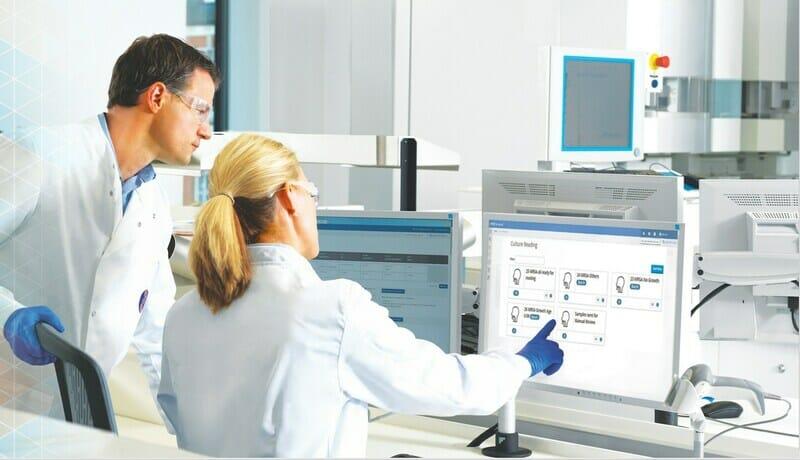BD (Becton, Dickinson and Company) (NYSE: BDX), a leading global medical technology company, today announced 510(k) clearance from the U.S. Food and Drug Administration (FDA) for the new BD Kiestra™ Methicillin-resistant Staphylococcus aureus (MRSA) imaging application that uses artificial intelligence (AI) to interpret bacterial growth and release negative specimens with minimal human interaction.
The BD Kiestra™ MRSA application uses AI to automate the traditionally labor- and time-intensive task of inspecting Petri dishes to determine if there is bacterial growth or not, enabling medical laboratory scientists and technicians to spend more time on higher value analysis. The application can evaluate single specimens or group together the large volume of plates with non-significant growth for batch review and release of negative results which may help reduce the administrative burden on technicians.
The MRSA imaging application uses AI algorithms to look for specific culture characteristics on the BBL™ CHROMagar™ MRSA II plate. Based on that information and analysis by BD Synapsys™ informatics, plate images are automatically organized and sorted into meaningful worklists for laboratory scientists and technicians.
“The pandemic created significant and ongoing labor challenges in laboratories, and reading plates is a labor-intense, potentially error-prone process in microbiology,” said Nikos Pavlidis, vice president and general manager for Diagnostics at BD. “The use of this imaging application to automatically organize specimens in meaningful worklists helps use limited laboratory staff more efficiently and allows lab personnel to bring their expertise to bear on more critical and complex specimens.”
According to the CDC, MRSA in hospital settings can cause severe problems, from blood stream or surgical-site infections to sepsis and death. Performing a lab test is the only way to determine if a particular kind of infection is caused by MRSA, so the ability to run these tests efficiently and effectively may have significant impact on patient treatment.
The AI-based imaging application is backed by the BD BBL™ CHROMagar™ MRSA II screening plates and powered by BD Synapsys™ Informatics Solution, and can be used with both standalone BD Kiestra™ ReadA systems as well as track-based BD Kiestra™ laboratory automation solutions.
BD Kiestra™ Solutions provide total lab automation for the clinical microbiology laboratory. These solutions are designed to enhance laboratory operations, increase financial efficiencies and advance laboratory operations. BD Kiestra™ lab automation offerings include scalable and modular microbiology workflow automation solutions, ranging from standalone units to fully automated track-based automation systems for mid- and high-volume labs. Learn more about BD Kiestra.
BD Synapsys™ Informatics Solution is a lab connectivity and workflow management solution, supporting integrated diagnostic processing, automated decision support and on-demand insights to address laboratory challenges and help improve outcomes. The informatics tools empower laboratory staff to impact turnaround time, expedite decision-making, improve productivity and support their compliance requirements. BD Synapsys™ Informatics Solution allows labs to analyze their performance using microbiology informatics through a single, advanced platform with an intuitive, personalized user interface. BD Synapsys™ Informatics was among the first life science diagnostics informatics platforms to receive the Underwriters Laboratory Cybersecurity Assurance Program certification, an independent third-party evaluation that uses standardized, testable criteria for assessing software vulnerabilities and weaknesses. Learn more about BD Synapsys™



